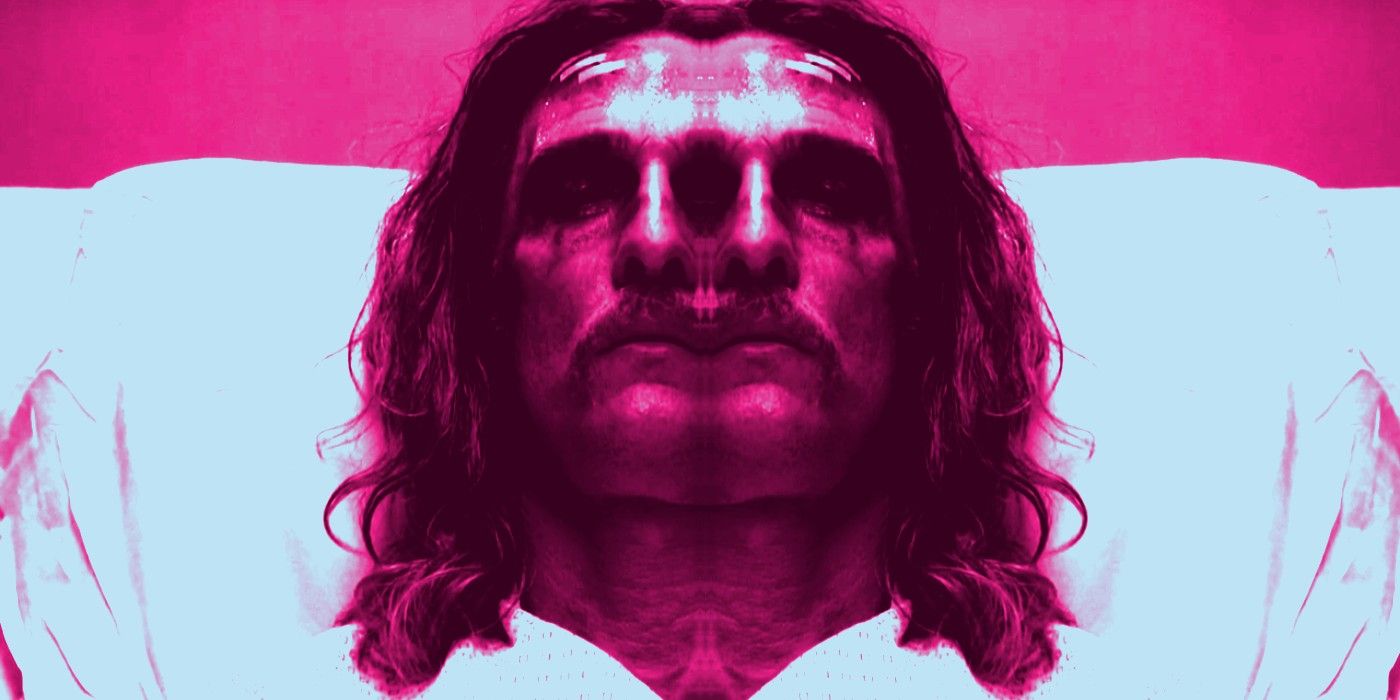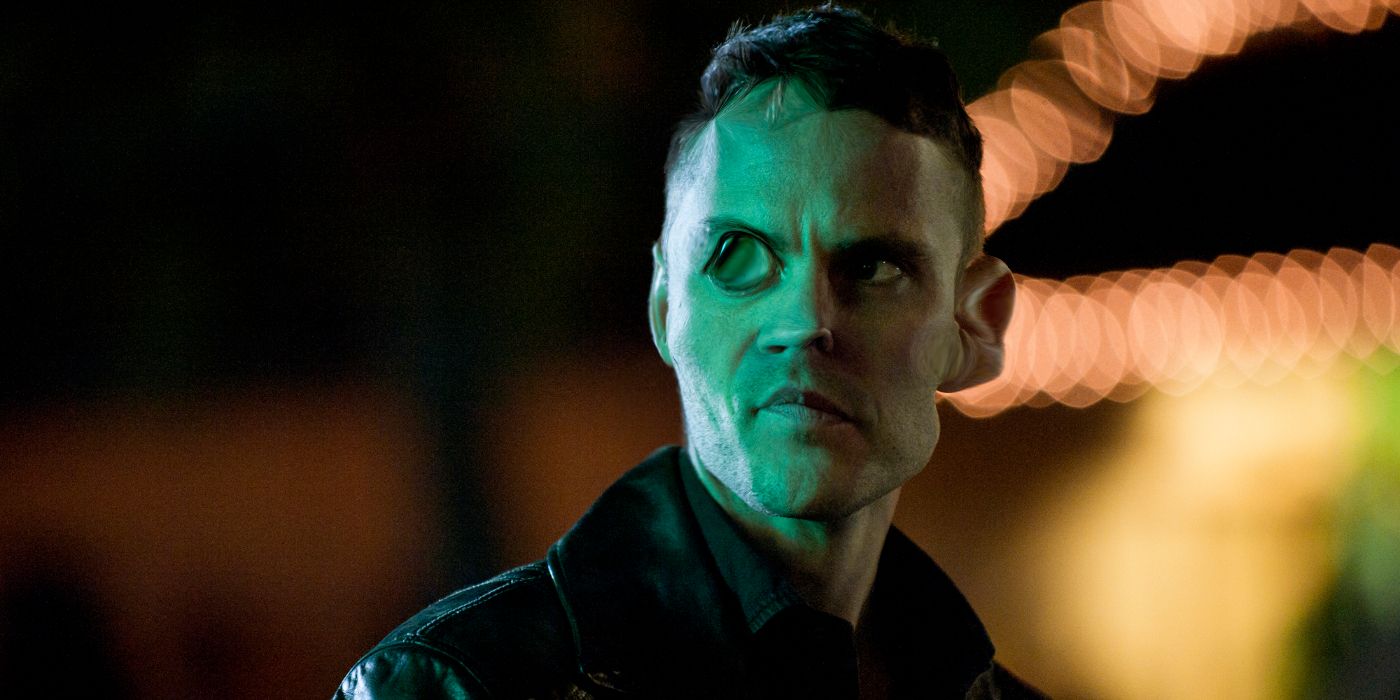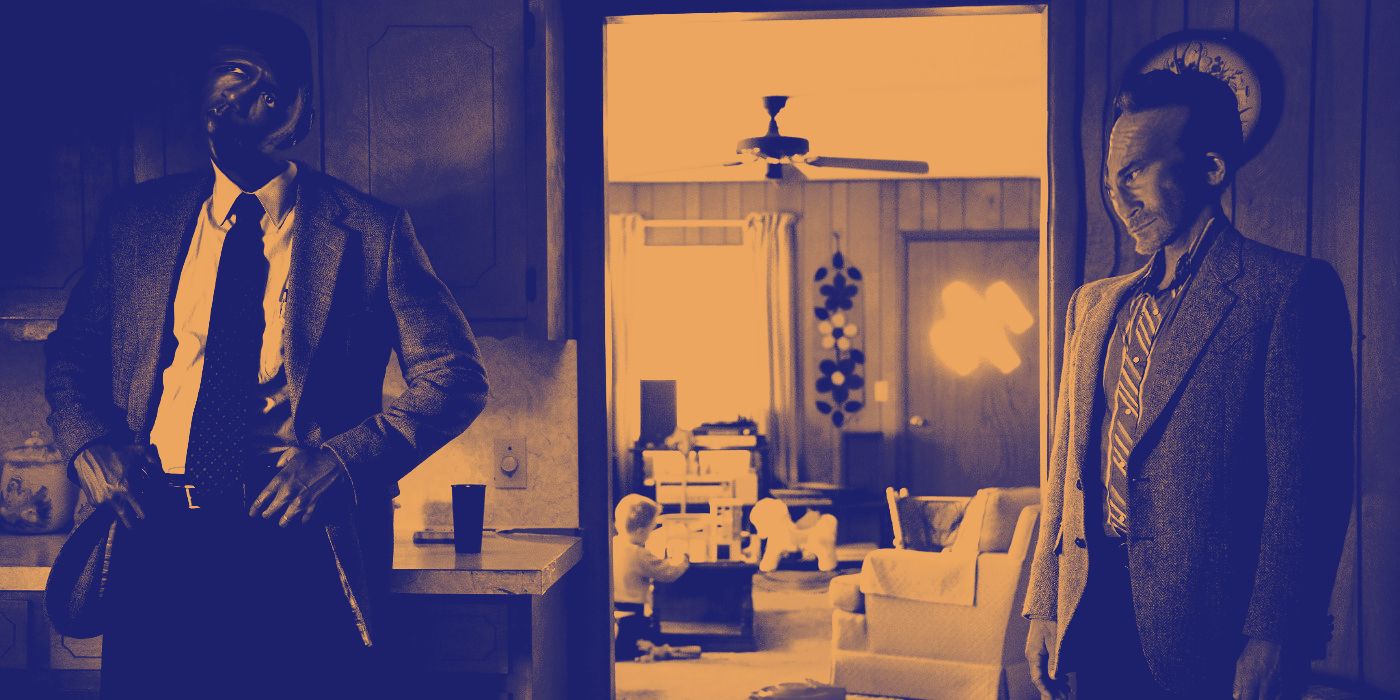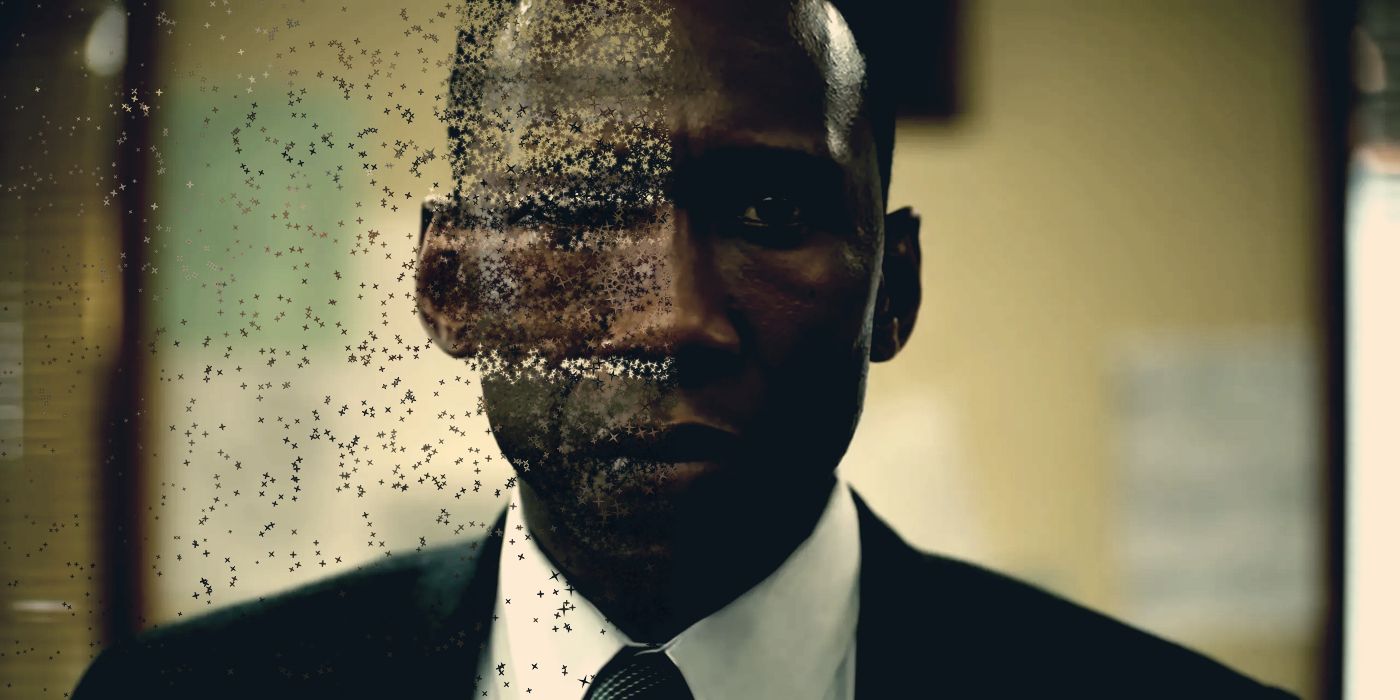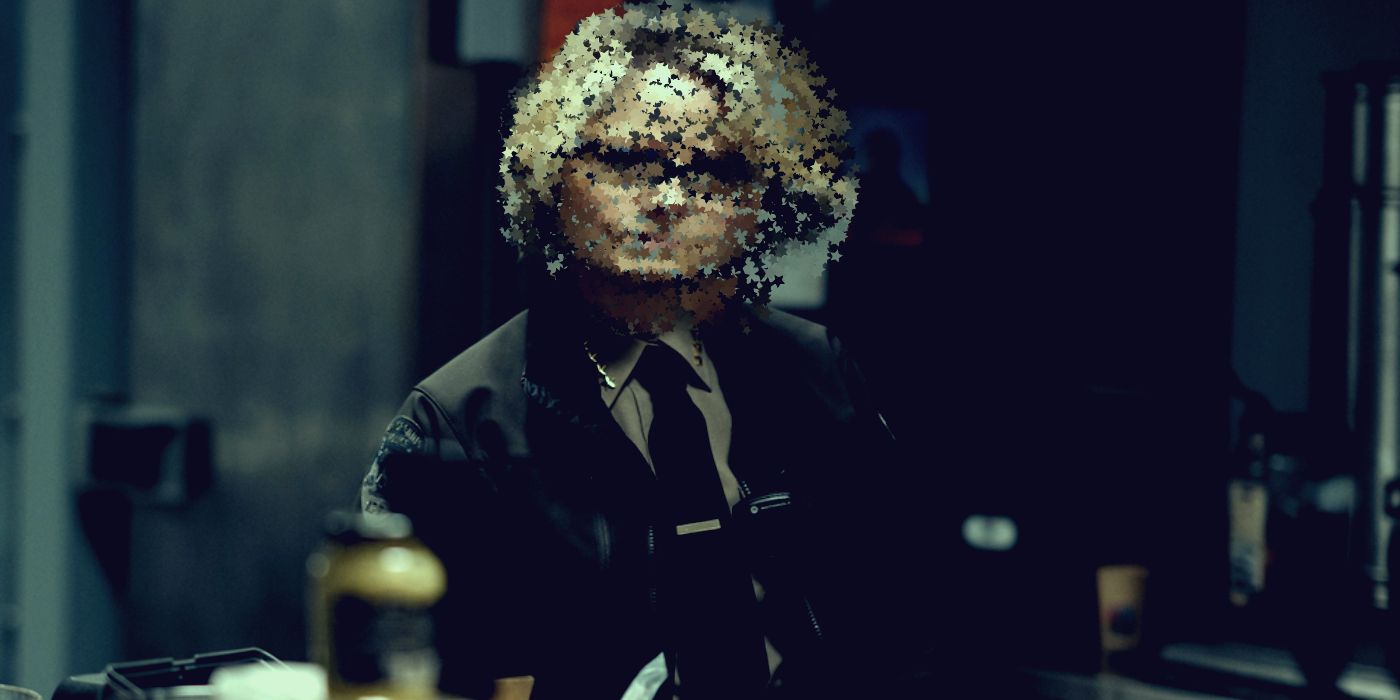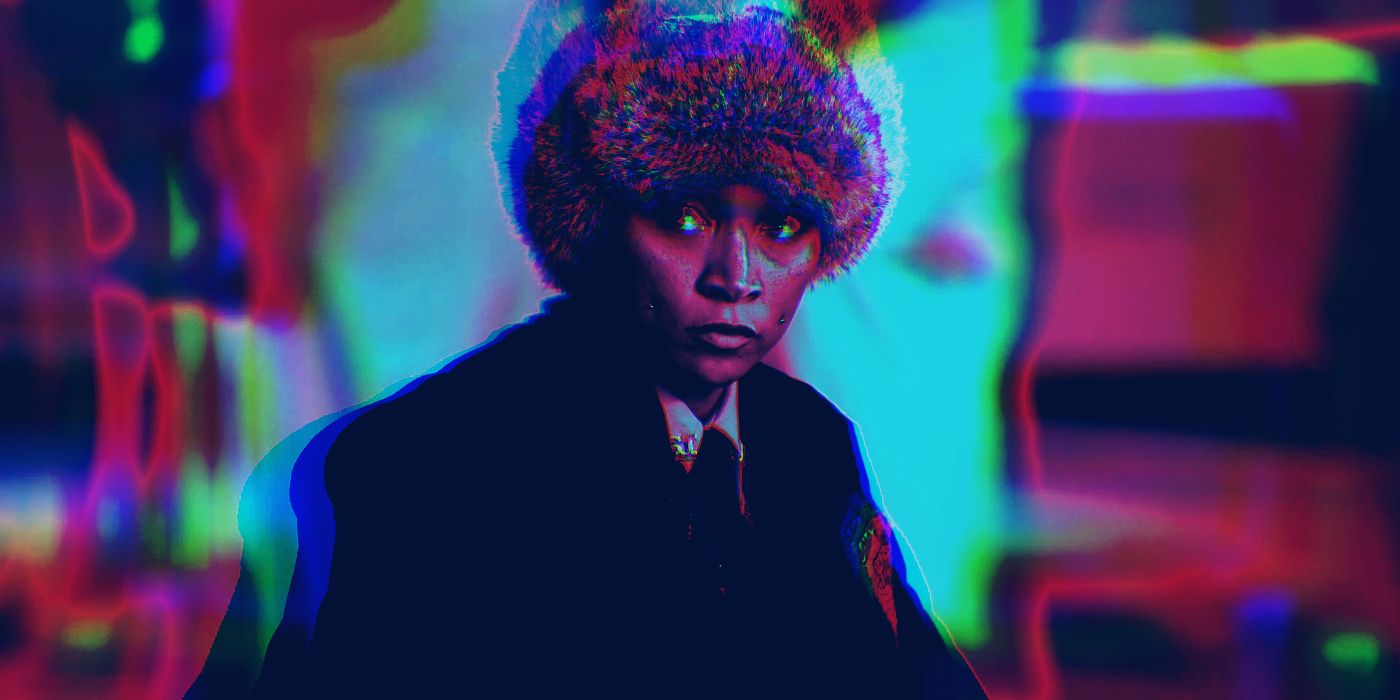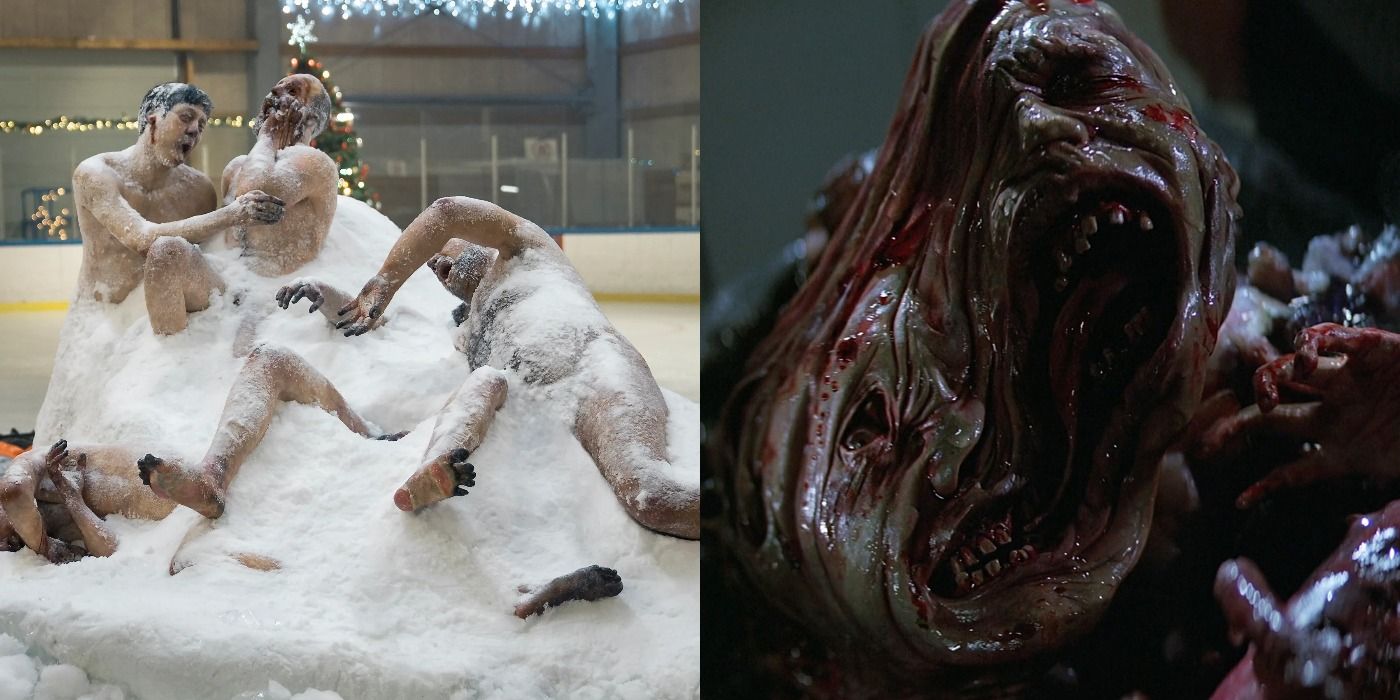Summary
-
True Detective
shows hints of greatness but ultimately borrows heavily from better films, books, and thinkers. - Rust Cohle, the standout character, was the first embodiment of the series’ tendency to steal its greatest moments.
- Each season of
True Detective
draws inspiration from different genres and sources, often resulting in a watered-down imitation. Especially season four.
For many of us, True Detective seemed like a revelation when it first premiered on HBO one decade ago, on Jan. 12th, 2014. It featured an outstanding cast (Matthew McConaughey, Woody Harrelson, Michelle Monaghan, Michael Potts, and Alexandra Daddario) committing fully to an inky-dark crime thriller brimming with philosophical ideas and existential dread. It was wonderfully directed by Cary Joji Fukanaga, and had a nasty mystery worthy of its stunning performances. A handful of people, though, spotted some problems.
Writer and creator Nic Pizzolatto was praised for constructing the rare original police procedural, but certain philosophy and horror geeks pointed out that his scripts and characters were arguably not that unique, after all. If people had to narrow down the greatest aspect of True Detective season one, most people would likely choose Matthew McConaughey and his character, Rustin Cohle. Unfortunately, it’s Rust who is the most blatant ripoff of the entire season; it may not be legal plagiarism, but it certainly felt like ethical theft.
With the finale of the fourth season, dubbed Night Country, fast approaching, we wanted to highlight some of the best parts of True Detective throughout the past decade, and how they are mere shadows of better material. We’ll be briefly breaking down each season to show how much has been cribbed from better films, books, series, and thinkers. You can see the basics in the table below:
|
True Detective |
Theme |
Stolen Source |
|---|---|---|
|
Season 1 |
Southern horror noir |
Angel Heart, Frailty, Killer Joe, The Killer Inside Me, Philosophers |
|
Season 2 |
L.A. crime thriller noir |
L.A. Confidential, Chinatown |
|
Season 3 |
Mixed race buddy cop drama |
The Defiant Ones, Hap & Leonard, In the Heat of the Night |
|
Season 4 |
Arctic horror noir |
Wind River, Catch the Fair One, The Wall, The Head, Fortitude |
Rust Cohle and Pizzolatto’s Plagiarized Pessimism
As we were saying — Rust Cohle is possibly the greatest part of True Detective (every season) so far. It’s one of the great television performances, but also one that’s perfectly paired with Cohle’s unpretentious and sarcastic partner, Marty Hart (played with a mix of sleaze and Southern charm by Woody Harrelson). Rust has adopted an attitude that has historically been referred to as philosophical pessimism. While it draws on theological elements of Buddhism and Christianity from many years ago, its main antecedents are in philosophers Arthur Schopenhauer, Peter Wessel Zapffe, E.M. Cioran, and Philipp Mainländer.
Today, some of the most revered thinkers in the landscape of pessimism are John Gray, David Benatar, and Thomas Ligotti, normally a writer of horror fiction who also authored one of the greatest modern texts of pessimism, The Conspiracy Against the Human Race. It’s Ligotti who True Detective creator Nic Pizzolatto clearly rips off the most in season one. For just a handful of instances, compare some of Rust Cohle’s lines in True Detective with some of Thomas Ligotti’s writing in The Conspiracy Against the Human Race (with accompanying page numbers) in the table below:
|
Rust Cohle |
Thomas Ligotti |
|---|---|
|
We became too self-aware. Nature created an aspect of nature separate from itself. We are creatures that should not exist by natural law. |
We know that nature has veered into the supernatural by fabricating a creature that cannot and should not exist by natural law, and yet does. (p.111) |
|
The only honorable thing for our species to do is deny our programming, stop reproducing and march hand-in-hand into extinction. |
The human race will never do the honorable thing and abort itself. (p. 138) To end this self-deception… we must cease reproducing. (p. 29) |
|
I think about the hubris it must take to yank a soul out of nonexistence into this meat… Force a life into this thresher. |
Whatever else we may be as creatures that go to and fro on the earth and walk up and down upon it, we are meat. (p. 165) Why should generations unborn be spared entry into the human thresher? (p. 74) |
|
I think human consciousness is a tragic misstep in evolution. |
Human existence is a tragedy that need not have been were it not for the intervention in our lives of a single, calamitous event: the evolution of consciousness: parent of all horrors. (p. 15) |
|
We are things that labor under the illusion of having a ‘self’…each of us programmed with total assurance that we’re each somebody, when in fact everybody is nobody. |
And the worst possible thing we could know — worse than knowing of our descent from a mass of microorganisms — is that we are nobodies not somebodies, puppets not people. (p. 109) Everybody is nobody. (p. 199) |
It’s painfully unmistakable that Rust Cohle is essentially a manifestation of Ligotti’s ideas (although Pizzolatto certainly steals complete lines directly from other thinkers, especially E.M. Cioran) and the antinatalism espoused by him, David Benatar, and others. The fact that Pizzolatto twists this philosophy and has Rust survive to say something genuinely optimistic (“the light is winning”) at the end of True Detective would surely disgust the original authors who were stolen from here.
It’s interesting to note that there are two great McConaughey films which the first season of True Detective lifts from liberally. Those would be the Southern gothic noirs Killer Joe and Frailty. The former is William Friedkin’s often sick and disturbing crime thriller about a corrupt cop and hitman, Joe Cooper. The latter is a creepy, religiously infused crime thriller about an FBI agent pursuing a serial killer. Both films have an obvious influence on the policing, dark tones, misogyny, Southern noir, religious themes, and serial killer narrative of True Detective. Other films that mix Southern noir with gothic horror, such as Angel Heart and especially The Killer Inside Me, also apply here.
Season 2: True Detective Goes L.A. Noir
The much maligned second season of True Detective, starring Colin Farrell, Rachel McAdams, Taylor Kitsch, Vince Vaughn, and Kelly Reilly, was considered a massive disappointment to the majority of season one fans. Without exact dialogue to steal, audiences were left with lines such as, “It’s like blue balls in your heart” or “When you walk, it’s like erasers clapping.” It felt like an AI designed to emulate Raymond Chandler writing an episode of NCIS: Los Angeles.
It also felt a hell of a lot like Chinatown, the classic Jack Nicholson film with a labyrinthine plot about California, real estate, and abuse. It takes the same themes of corruption from L.A. Confidential and copies several of its main characters (without ever really getting into the studio system). The web of criminality and confused detectives is spun just like Inherent Vice but with none of the humor or charm. It takes from the clandestine cult in John D. MacDonald’s The Green Ripper and the pulpy development deals and drunk detectives of James Ellroy novels.
As such, the entire season feels like a watered down cocktail built from much better films and books founded in the L.A. noir subgenre. No one single thing is downright stolen, however, but the major ripoff of season one, Rust Cohle, haunts the proceedings in obvious ways. It often feels like every character is emulating Rust Cohle, speaking in highly literary, elliptical, and sometimes philosophical ways with grim stoicisim. There is no Woody Harrelson character to bounce off these dour protagonists, who all seem to psychoanalyze themselves and each other constantly, and it becomes almost masturbatory in its theatrical desire to be as brooding as Rust Cohle.
It’s also weirdly immature, clumsily stepping around issues like being gay and divorce as if it’s a 1980s after-school special, and spouting off awkwardly juvenile jokes. Like when Farrell’s character, Ray, says of e-cigarettes, “Maybe it’s just a little too close to sucking a robot’s d*ck.” Or when he screams at a child named Aspen and calls him, “ASS-Pen.” And then there are lines that desperately want to seem wiser than they actually are, such as, “Never do anything out of hunger. Not even eating,” or simply, “Everything is fu*king.” There are so many cringe moments throughout the second season that you almost wish there was more plagiarism.
Season 3: Black Cop White Cop
It’s obvious by now that each season of True Detective is devoted to a different strand of police procedural, allowing it to take from a wider swath of sources. The third season cribs from the classic Black cop / white cop dynamic of films like The Defiant Ones, In the Heat of the Night, 48 Hours, Lethal Weapon, Se7en, and others, especially the crime series Hap & Leonard. It capitalizes on the race relations that the aforementioned Sidney Poitier films investigated in the context of policing.
The season not only creates a flat, one-dimensional portrait of a very stubborn and proud Black detective facing racism in the Ozarks, but it also paints the broadest caricature of hillbillies one can imagine. It’s ‘rednecks on parade’ here, with Pizzolatto incapable of any kind of subtlety, painting the Southerners as perpetually drunk, adulterous hypocrites who are blindly religious but angry, bored, and poor.
If season three of True Detective plagiarizes anything, it’s arguably true crime itself. The series’ plot draws heavily on the ‘stranger danger’ and ‘Satanic panic’ vibes of the 1980s, obviously inspired by cases like The West Memphis Three and the abduction of Jacob Wetterling, a boy who was kidnapped and reappeared decades later (a narrative that the show gender-swaps). Like every season of True Detective, the crime is connected to sex trafficking and corruption. The criminality of season one can be blamed on corrupt religious leaders; for season two, it’s corrupt agents of the police and government; in season three, it’s the corruption of corporations and the rich elite.
The season also takes from Memento, with the lead character (played very well by Mahershala Ali) succumbing to severe memory loss in the present day. As such, it also cribs from novels where memory loss is integral to the crimes being committed, like Paula Hawkins’ The Girl on the Train, Robert Ludlum’s Bourne books, and especially Tana French’s In the Woods.
Night Country, Body Horror, and Indigenous Lives
Season four of True Detective saw a change in leadership, with Pizzolatto stepping away and Issa López (Tigers Are Not Afraid) coming in to run the show. Unfortunately, the series continues to be one of the most unoriginal things on television with Night Country, which blatantly rips off a variety of great TV series from the past decade that have come to be known as ‘Arctic Noir’ — The Wall, The Head, Fortitude. These series, loosely similar to the bitter cold of Nordic Noir shows like The Killing, are almost all set in isolated, small, frozens where weird occurrences force local police to take action.
The Head takes place during the sunless months (like Night Country) at a research station (like Night Country), where scientists are being killed (like Night Country). Meanwhile, Night Country feels very similar to the complicated plots of missing Indigenous women present in the Canadian TV series, Three Pines, not to mention the Taylor Sheridan film, Wind River. Of course, more attention needs to be paid to this subject in general, but it was ironically tackled with more grit and passion in a film made by Night Country star Kali Reis prior to this season of True Detective.
Catch the Fair One stars Reis (who also worked on the story) as a boxer searching for her missing sister, a quest which takes her into the underworld of sex trafficking and drugs. The film is devoted to spotlighting the suffering of Indigenous women that is so often sidelined by mainstream media outlets. Reis is viscerally stunning in the movie, which relates deeply to her own experiences. Reis spoke to MovieWeb about this:
“Just being a mixed Indigenous woman, being Cape Verdean and Wampanoag, and just being an indigenous person in today’s society where we are the forgotten race, we are the forgotten people, even though we’re the original people of this land. We’re leading in statistics like murder rates, addiction rates, homelessness.
The list goes on and on, and that sense of loss and that genetic genocide that’s been passed on from generation to generation is something real that I experienced firsthand […] I do have family members who have gone missing and turned up murdered. You know, I personally know people who are missing, I know somebody who knows somebody, you know, and our Native community is so tight, close-knit. We as Native people know our Native problem, we call it Indian country, because it’s like a whole different other world.”
Unfortunately, the way Night Country handles the issue is more camp than anything else, and again, it seems like it’s stealing its themes and motifs from better sources. Even the seemingly more unique components of the season, such as its emphasis on horror, are completely cribbed. The ‘corpsicle’ (a group of naked men frozen together in death) seemed like a cool idea, but doesn’t it seem straight from the body horror of John Carpenter’s The Thing?
Jodie Foster is always wonderful, but even her character seems like a knockoff amalgam of Frances McDormand’s in Fargo and Foster’s own Clarice Starling in Silence of the Lambs. Every character is utterly stereotypical here, from the determined rookie cop, to the detective’s rebellious daughter, to the bitter and lazy spurned policeman (a wonderful John Hawkes), to the arrogant and powerful police captain.
Finally, and perhaps inevitably, True Detective has begun to copy itself. Like an awkward ouroboros, it is eating its own tail, trying to connect the fourth season to what started the show itself, Rust Cohle. It’s all a little depressing, considering how excellent the series’ performances have been, and how well produced and directed it often is. There is a lot to admire about True Detective — it’s just recycled at best and stolen at worst.
Stream True Detective
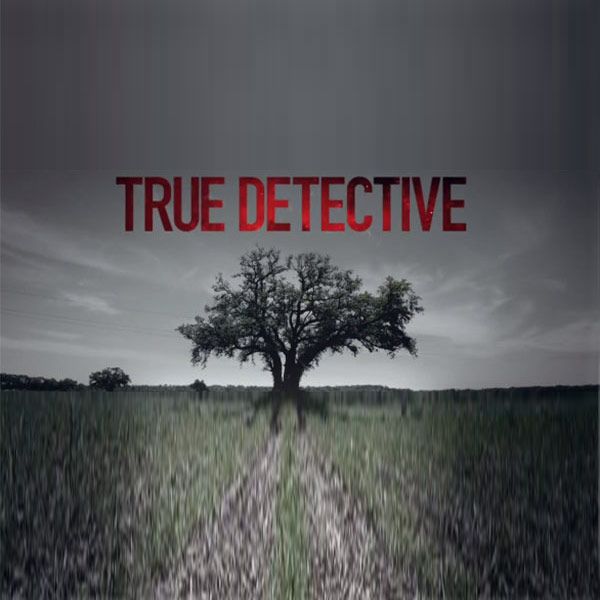
True Detective
- Release Date
- January 12, 2014
- Cast
- Mahershala Ali , Stephen Dorff , Carmen Ejogo , Scoot McNairy , Jodie Foster , Kali Reis , Matthew McConaughey , Woody Harrelson , Alexandra Daddario , John Hawkes , Colin Farrell , Vince Vaughn
- Seasons
- 4
- Studio
- HBO


